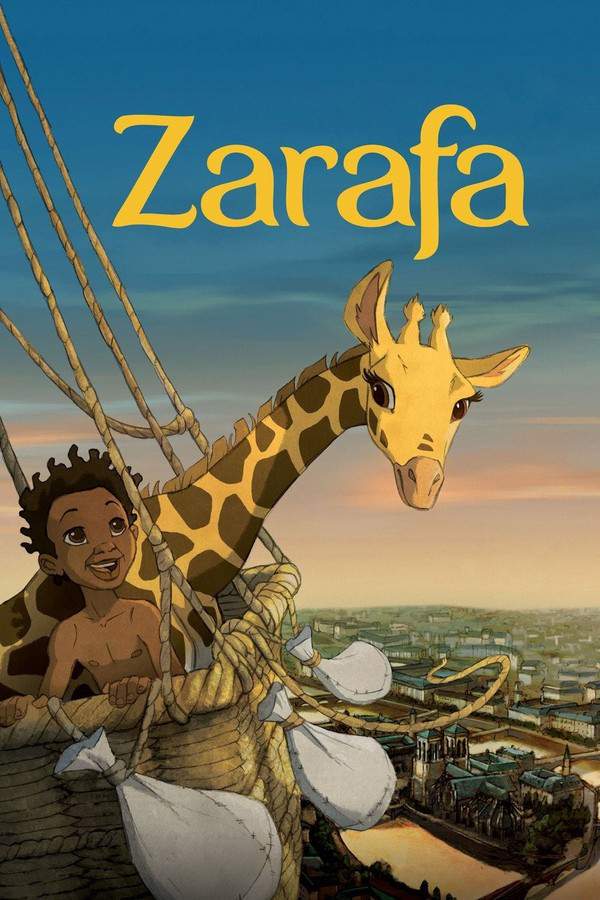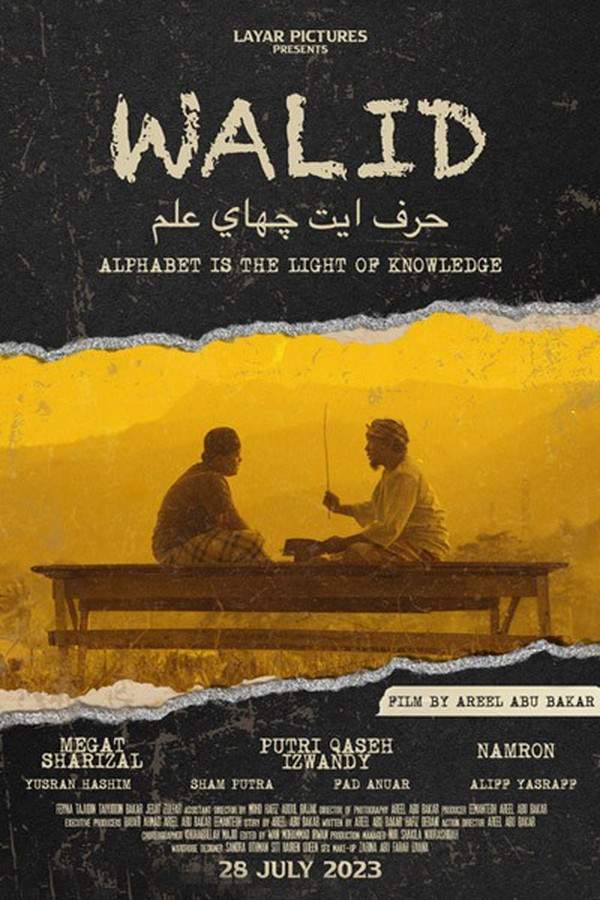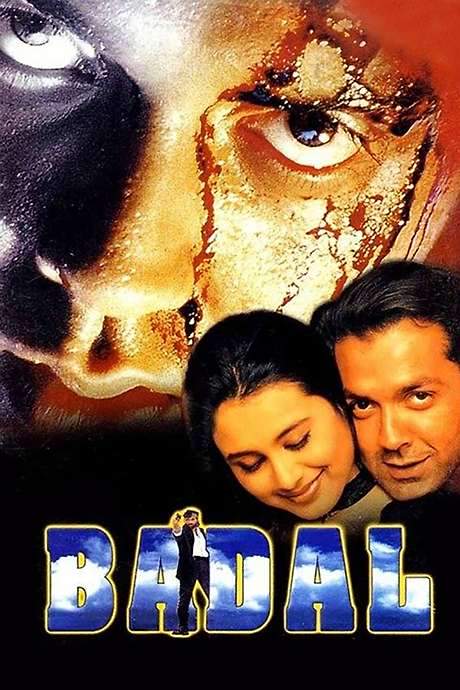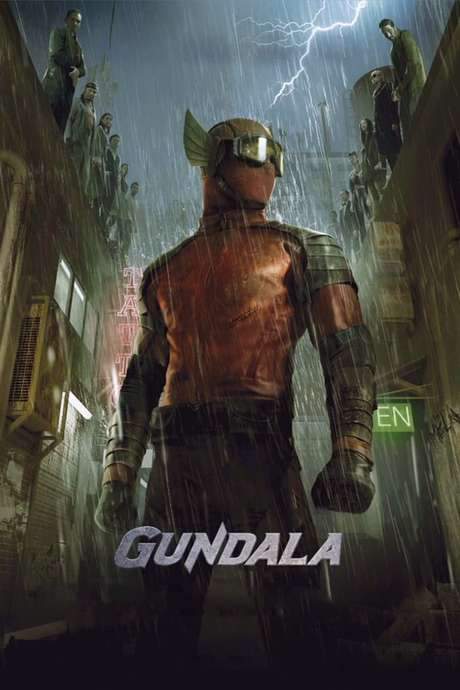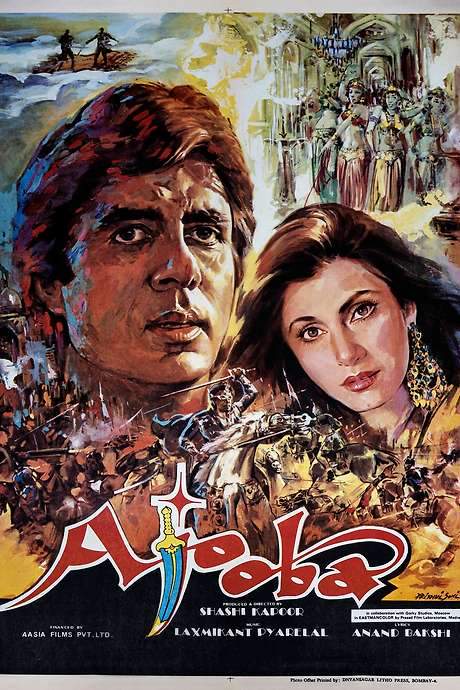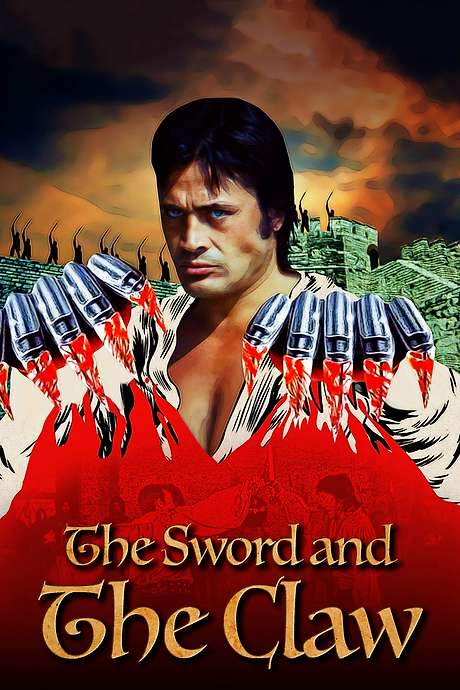Bilal: A New Breed of Hero 2016

Bilal's peaceful childhood is shattered when he and his brother are kidnapped from their home. Raised in a corrupt and oppressive society, he grows into a skilled warrior. However, witnessing injustice fuels a desire for change, leading him to confront the existing power structures and fight for a more hopeful future, ultimately discovering his own strength and purpose along the way.
Does Bilal: A New Breed of Hero have end credit scenes?
No!
Bilal: A New Breed of Hero does not have end credit scenes. You can leave when the credits roll.
Meet the Full Cast and Actors of Bilal: A New Breed of Hero
Explore the complete cast of Bilal: A New Breed of Hero, including both lead and supporting actors. Learn who plays each character, discover their past roles and achievements, and find out what makes this ensemble cast stand out in the world of film and television.
External Links and Streaming Options
Discover where to watch Bilal: A New Breed of Hero online, including streaming platforms, rental options, and official sources. Compare reviews, ratings, and in-depth movie information across sites like IMDb, TMDb, Wikipedia or Rotten Tomatoes.
Ratings and Reviews for Bilal: A New Breed of Hero
See how Bilal: A New Breed of Hero is rated across major platforms like IMDb, Metacritic, and TMDb. Compare audience scores and critic reviews to understand where Bilal: A New Breed of Hero stands among top-rated movies in its genre.

52
Metascore
8.5
User Score


58%
TOMATOMETER

85%
User Score

7.6 /10
IMDb Rating

68
%
User Score

3.3
From 3 fan ratings

4.50/5
From 36 fan ratings
Take the Ultimate Bilal: A New Breed of Hero Movie Quiz
Challenge your knowledge of Bilal: A New Breed of Hero with this fun and interactive movie quiz. Test yourself on key plot points, iconic characters, hidden details, and memorable moments to see how well you really know the film.
Bilal: A New Breed of Hero Quiz: Test your knowledge on the journey of Bilal, a young hero navigating the challenges of slavery, betrayal, and redemption.
What event triggers the disruption of Bilal's peaceful life?
Arrival of Byzantine soldiers
Flood in the village
A famine
An invasion by pirates
Show hint
Full Plot Summary and Ending Explained for Bilal: A New Breed of Hero
Read the complete plot summary of Bilal: A New Breed of Hero, including all major events, twists, and the full ending explained in detail. Explore key characters, themes, hidden meanings, and everything you need to understand the story from beginning to end.
In the peaceful outskirts of a village, Bilal experiences a tranquil life with his mother and younger sister until the abrupt arrival of Byzantine soldiers shatters their harmony. This invasion tragically takes the life of Bilal’s mother, leaving him and his family vulnerable to the invaders’ cruelty. In the wake of this calamity, Bilal finds himself sold into slavery to Umayyah (/actor/umayyah), an influential leader of the Quraysh clan.
As Bilal endures his grim new existence as a slave in Mecca, he encounters Okba (/actor/okba), another prominent member of the Quraysh, who is engaged in selling an array of idols to the unsuspecting townspeople. Meanwhile, a mysterious figure known as the Charlatan Priest spins a web of deception, promising those in despair that the idols will grant their deepest wishes in exchange for their money.
Umayyah’s son, Safwan (/actor/safwan), is notorious for his bullying tendencies, particularly towards Bilal’s sister, Ghufaira. When Safwan and his friends threaten Ghufaira, Bilal bravely intervenes, but his defiance earns him a harsh punishment from Umayyah, who delivers a fierce reminder of Bilal’s status as a slave.
As Bilal matures, he forms a unique bond with a majestic white horse that becomes his beloved companion. He also befriends Saad (/actor/saad), a talented archer. Together, they navigate the perils of their servitude. During a significant moment, Bilal shares his own food with a starving boy in need, a selfless gesture that garners the attention of Abu Bakr (/actor/abu-bakr), a man who champions the principles of equality and justice.
Unbeknownst to Bilal and Abu Bakr, Safwan’s servant has been secretly observing their actions. This interaction plants the seeds for future upheaval when Sohaib (/actor/sohaib), a Persian slave procured from Roman lands, gifts Bilal a token originally intended for Umayyah. This pivotal moment propels Bilal toward self-discovery and acceptance of Abu Bakr’s ideals, leading him to understand that even those like Umayyah are ultimately enslaved by their own desires and possessions.
As a lavish feast honoring Safwan’s success concludes, Abu al-Hakam approaches Umayyah, delivering a grave warning about a rising faction determined to oppose Umayyah’s power. The seasoned merchant grows troubled as he hears news of defections among his allies. Seizing on this opportunity, Bilal finds himself wrongfully accused by Safwan of complicity with the dissidents. After a brutal interrogation, Bilal is imprisoned and subjected to torments so severe that his pleas for mercy are ignored. In a desperate maneuver to shatter Bilal’s resolve, Umayyah tempts him with a chance for freedom in exchange for spying on the opposition. Bilal remains steadfast in his beliefs, refusing the Faustian deal, which leads to him being publicly chained as a grim warning to others.
During this time, Ghufaira, a gift to Safwan from his father, is kept under Safwan’s watchful eye, serving as cruel psychological torment for Bilal, who is haunted by the thought of her plight. As months pass, Bilal finds salvation when Abu Bakr purchases him from Umayyah and grants him his freedom. Embarking on a path toward redemption, Bilal is taken under the wing of Hamza (/actor/hamza), a skilled warrior and foster brother to the leader of the opposing faction. Together, they flee the Meccans’ wrath.
A year passes before fate draws them to the great city of Yathrib, now transformed into Medina. Settling into his new surroundings, Bilal receives a paquete from Safwan—an emotional reminder of his lost love in the form of a lock of Ghufaira’s hair. The discovery drives Bilal back to Mecca, accompanied by Hamza. Their arrival unveils a scene of devastation; the city is engulfed in flames, and countless innocents fall victim to Umayyah’s bloodthirsty orders. Racing toward Umayyah’s mansion, Bilal is met with a horrifying sight—Ghufaira’s hair, soaked in blood, signals her possible death. Just as he faces execution, Hamza’s timely intervention allows them to escape back to Medina.
As the tempestuous years unfold, Medina’s unforeseen alliances with neighboring cities prompt a shakeup in Mecca’s dominion. Umayyah, fueled by his ambition and business aspirations, declares war against these new coalitions, jeopardizing the balance of power in the region. In the thick of this turmoil, Bilal confronts Umayyah, urgently calling for an end to the senseless violence—yet he is met with stubborn refusal. Their fateful encounter ends with Umayyah’s untimely demise, falling at Bilal’s hands.
In the wake of this upheaval, Mecca’s forces falter against the onslaught of destiny, their ranks crumbling under chaos. Divine providence tips the scale as the movement receives unexpected divine reinforcements. The fallout from Umayyah’s death sends ripples of anger and a thirst for vengeance, igniting a relentless campaign led by Safwan (/actor/safwan) against Mecca.
As time shapes the destiny of Arabia, the sands of conflict wear down Mecca’s insular power while strongholds around the city surrender to the new united forces. Amidst this surge, Hamza meets his fate in yet another brutal clash, his heroism etched in the annals of history.
Years pass, and with Arabia laid to ruin, Mecca stands alone, defiantly resisting the tide of conquest. In a futile attempt to appease the fickle idols, the High Priest of Mecca meets his demise, leaving the once-mighty icons impotent and powerless.
At last, Bilal stands before Mecca’s sacred inner sanctum, confronting Safwan about the senseless fate of Ghufaira. The aftermath reveals a shocking truth: Ghufaira is alive. This epiphany reshapes their conflict, prompting Bilal to spare Safwan’s life and urge him toward a more peaceful path.
The reunion of Bilal and Ghufaira radiates hope amidst despair, while Safwan emerges from his chamber, drawn by the commotion of Mecca’s holy grounds. He witnesses an incredible moment: Bilal, standing resolutely before the Kaaba, calls the faithful to prayer while the shattered idols lie in silence, their immense influence finally diminished.
Uncover the Details: Timeline, Characters, Themes, and Beyond!

Coming soon on iOS and Android
The Plot Explained Mobile App
From blockbusters to hidden gems — dive into movie stories anytime, anywhere. Save your favorites, discover plots faster, and never miss a twist again.
Sign up to be the first to know when we launch. Your email stays private — always.
Watch Trailers, Clips & Behind-the-Scenes for Bilal: A New Breed of Hero
Watch official trailers, exclusive clips, cast interviews, and behind-the-scenes footage from Bilal: A New Breed of Hero. Dive deeper into the making of the film, its standout moments, and key production insights.
Bilal: A New Breed of Hero Themes and Keywords
Discover the central themes, ideas, and keywords that define the movie’s story, tone, and message. Analyze the film’s deeper meanings, genre influences, and recurring concepts.
Bilal: A New Breed of Hero Other Names and Titles
Explore the various alternative titles, translations, and other names used for Bilal: A New Breed of Hero across different regions and languages. Understand how the film is marketed and recognized worldwide.
Similar Movies To Bilal: A New Breed of Hero You Should Know About
Browse a curated list of movies similar in genre, tone, characters, or story structure. Discover new titles like the one you're watching, perfect for fans of related plots, vibes, or cinematic styles.
Quick Links: Summary, Cast, Ratings, More

What's After the Movie?
Not sure whether to stay after the credits? Find out!
Explore Our Movie Platform
New Movie Releases (2026)
Famous Movie Actors
Top Film Production Studios
Movie Plot Summaries & Endings
Major Movie Awards & Winners
Best Concert Films & Music Documentaries
Movie Collections and Curated Lists
© 2026 What's After the Movie. All rights reserved.





















